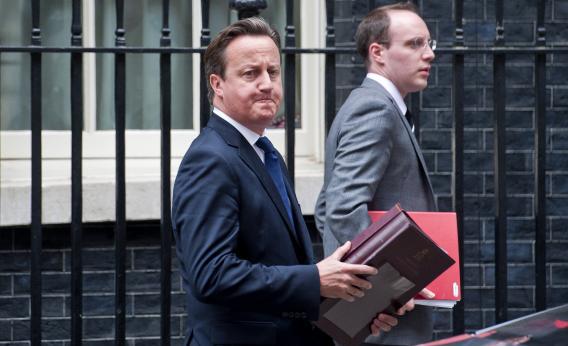Of all the names expected to be pivotal in the run-up to a possible international intervention in Syria, British Labour Party Leader Ed Miliband probably wasn’t one of them. But tonight,the New York Times reports that the Prime Minister David Cameron is now taking a more cautious line on Syria after an uproar from Parliament:
The British signal that it would not rush to military action came late Wednesday when the government of Prime Minister David Cameron, aware of the sensitivities created by the rush to war in Iraq a decade ago, altered the language of a motion to be voted on by Parliament on Thursday so that a separate vote on military action would be required. That vote may not take place until next week.
George Eaton of the New Statesman gives some background on Miliband’s moves today:
He announced on Twitter that the party would table an amendment to the government’s (then non-existent) motion requiring Cameron to return to the Commons to consult MPs after the UN team had reported on the Ghouta massacre. He added: “Parliament must tomorrow agree criteria for action, not write a blank cheque.” Labour sources subsequently briefed that were the amendment not accepted, the party would vote against the motion.
After initially ruling out a second vote, Cameron appears to have blinked after seeing signs of an “incipient rebellion on the Tory backbenches.”
Meanwhile, in a transparent bid to keep the weapons inspectors on the ground as long as possible, the Syrian government has suddenly discovered three previously unreported chemical weapons sites for them to visit.
It would be hard to imagine the White House ordering strikes without the support of the British—in essence going into battle without even the Bush administration’s coalition of the willing on board. But it also seems like it will only get harder for the Obama administration to sell the moral and legal case for this operation the farther we get from last week’s atrocities.
Today’s events at Westminster are also a reminder of why Congress isn’t going to be asked for its input on Syria any time soon.
